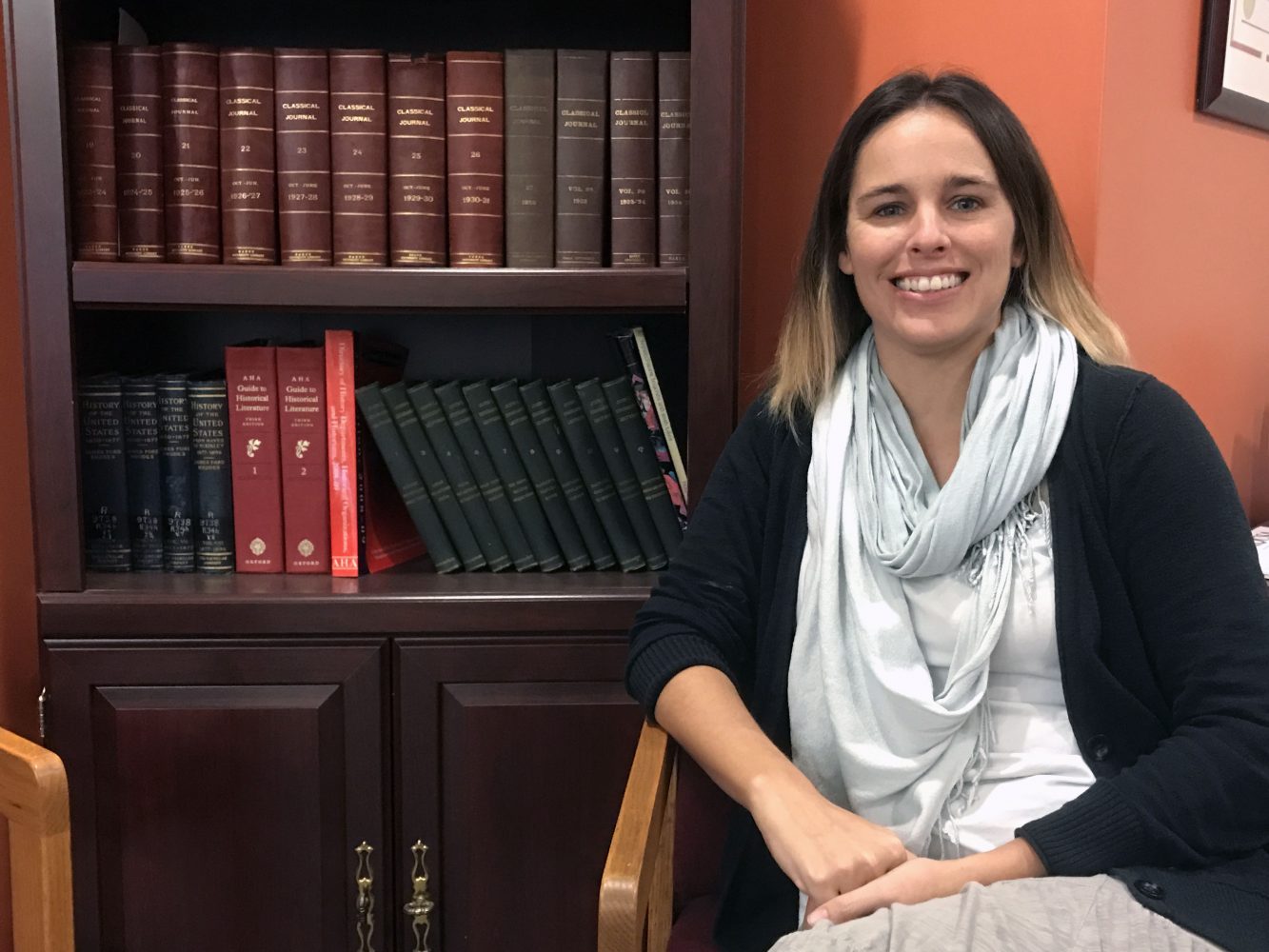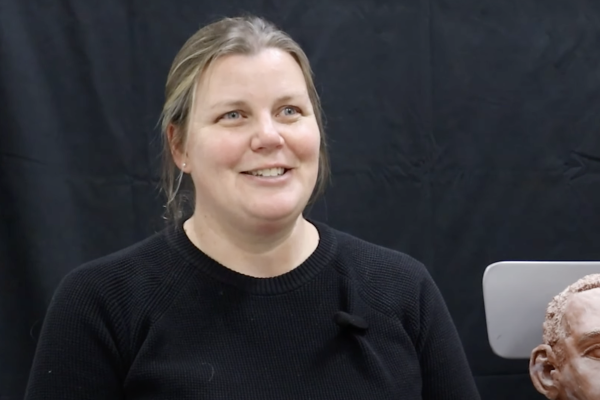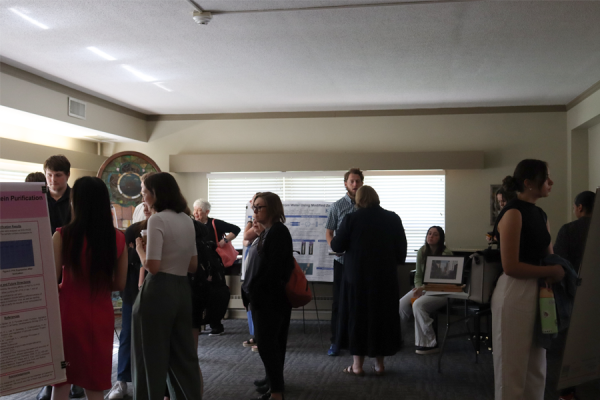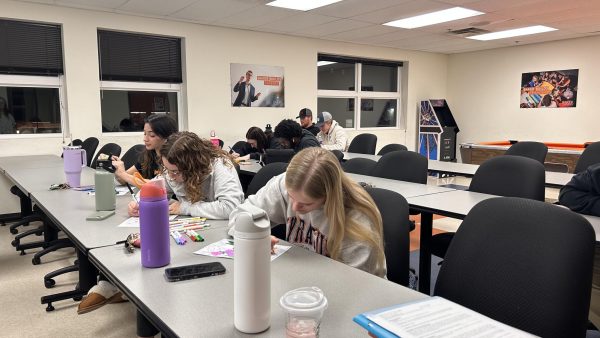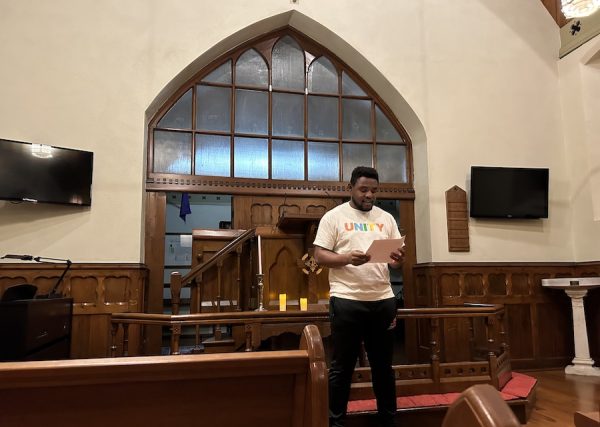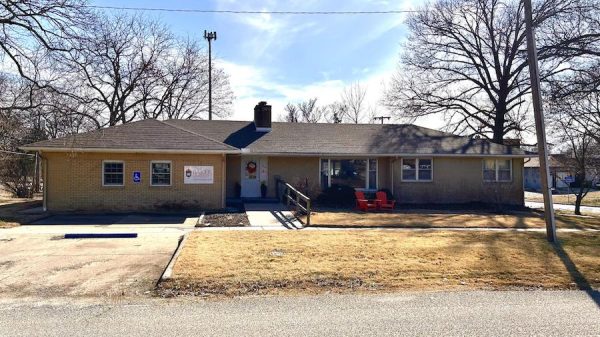Before teaching, Carrie Coward Bucher helped runaways
December 12, 2016
College students who procrastinate on papers or do not perform well on tests probably will not faze Assistant Professor of Sociology Carrie Coward Bucher. She has experience helping homeless children, including some who were selling their bodies on the streets.
“I worked at a place called Spruce Street,” Coward Bucher said. “I don’t think I knew really before then that there are kids 12-to-18 years old who live on the streets without their parents in America.”
During her time at Spruce Street, Coward Bucher worked to create a safe space for runaways, hoping to convince them that she could help.
“They have been trained to mistrust adults because most of them are running because the adults in their lives didn’t take care of them,” she said. “You have to convince them that they can trust you and that you can help them achieve something that feels worthwhile to them.”
Spruce Street was created after one particular girl with addiction problems would continuously run away from her parents, who were desperately trying to help her. The last night she ran away, she ended up freezing on the streets. The state of Washington, where Coward Bucher was at the time, ended up passing a law saying runaways could be confined for 72 hours as long as they aren’t sent to a prison.
Coward Bucher became passionate about these issues and wanted to do everything in her power to stop tragedies like this from happening to other children.
“I started off on the overnight shift, and I liked that because that’s just kids coming to you in their rawest, most vulnerable moments,” Coward Bucher said. “Because bad things have just happened to them, and that’s how they got arrested.”
After a while, she moved to the day shift and worked as a case manager, and her job duties including helping children relocate She liked this position because she wanted to make kids feel safe and let them know the next place they would go would be the right place for them.
“So you have these kids that come in with years of family trauma or addiction, and they’ve been prostituting themselves on the street,” Coward Bucher said. “It’s insane to think about the intensity of the trauma for these kids.”
To Coward Bucher, three days of confinement didn’t seem like enough for the trauma these children were experiencing. It was almost as if she was putting a bandage on a broken leg. She also wanted to find out why the children run away and what stops them from running, which eventually led her to grad school.
“I don’t ever remember thinking I wouldn’t teach,” Coward Bucher said. “I really like being around people, and I’m passionate about my research, but I think I always felt like I wanted to put myself in this academic community and that at least part of my contribution would be training the next set of social workers and engaged civilians.”
Senior sociology major Sloane Brady knows about Coward Bucher’s job history and believes her work with the homeless carries over to how she acts in the classroom.
“I think that because she has the background with the kids she worked with and having her own kids, she’s able to relate to students at Baker because she knows students here come from various backgrounds, just as the kids did that she worked with,” Brady said. “I feel like students are very receptive to her way of communicating due to her background as well.”
Senior Kekai Rivera-Albeso agreed that Coward Bucher talks to her students on a personal level and gets to know her students, unlike some other professors.
“She always wants her students to succeed,” Rivera-Albeso said. “She goes out of her way to help out any way she can.”
Involvement in programs on campus has helped Coward Bucher to connect with a variety of students. She enjoys interacting with students and getting to know them outside of the classroom lecture setting.
“I think I always felt like I wanted to put myself in this academic community,” Coward Bucher said. “And that’s what led me to Baker.”



